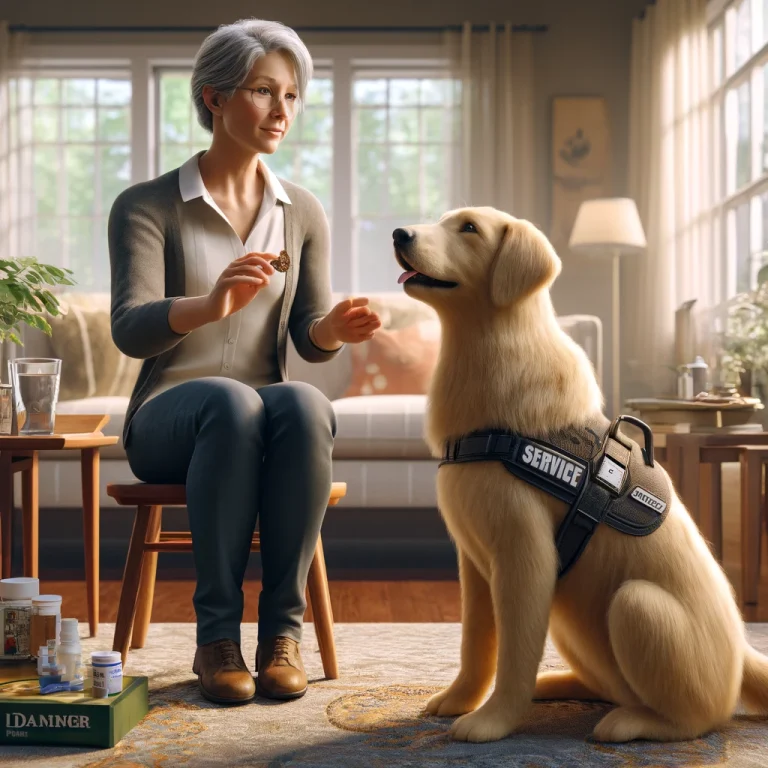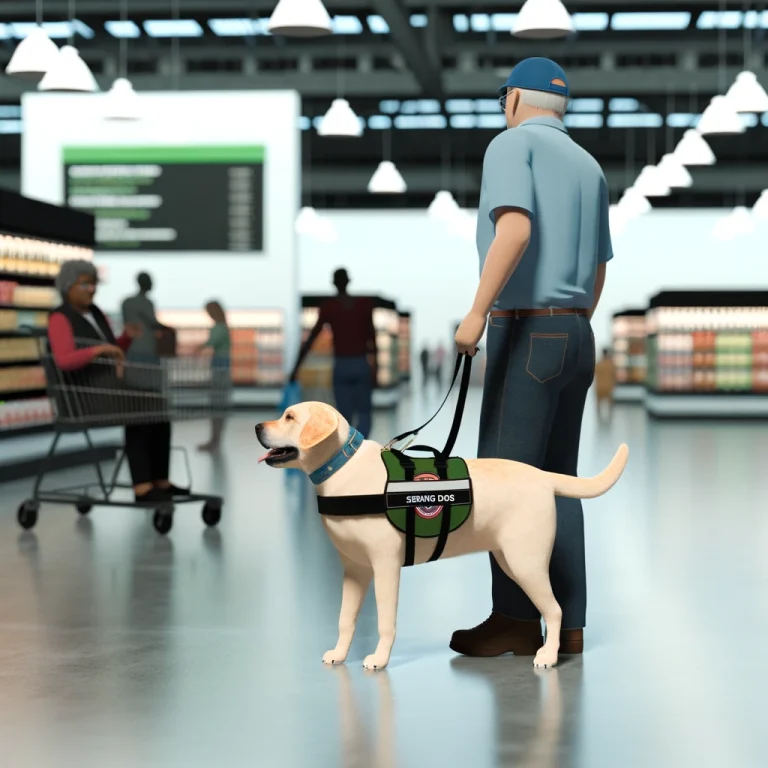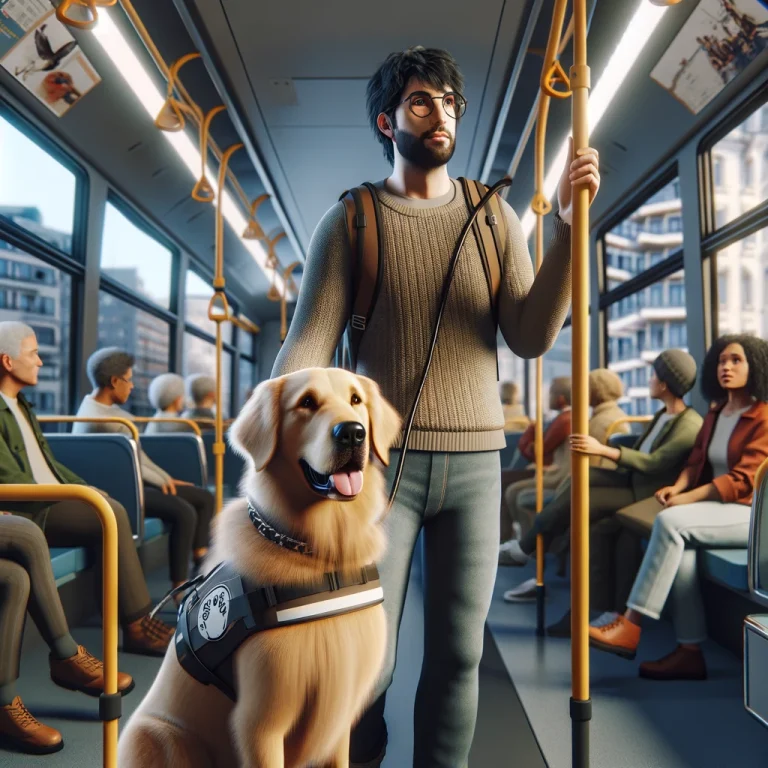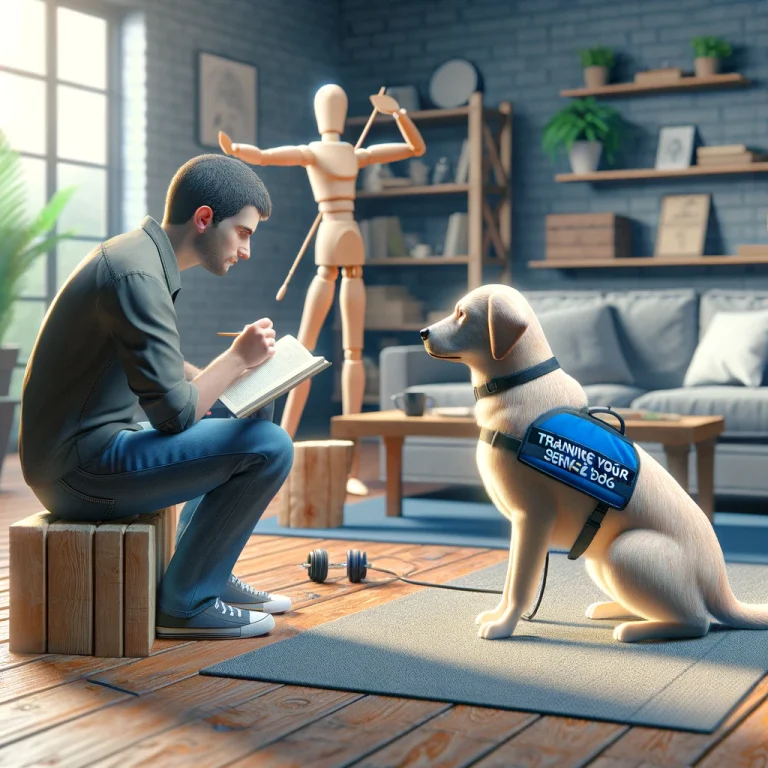Introduction: The World of Service Dogs
When asking, “Which dogs are service dogs?” you step into a world where canines are more than companions; they are lifesavers. This guide will introduce you to various breeds that excel as service dogs, highlighting their unique abilities and roles in assisting people with disabilities.
Defining Service Dogs
Service dogs are specially trained to assist individuals with various disabilities. They perform tasks like guiding the blind, alerting deaf people, providing mobility support, and more. It’s not just the breed that counts but also their temperament, training, and ability to perform specific tasks.
Labrador Retrievers: Guiding Stars
Labrador Retrievers are a top choice for guide dogs. Their intelligence, patience, and gentle demeanor make them ideal for guiding visually impaired individuals.
Golden Retrievers: Compassionate Companions
Golden Retrievers are known for their friendly and patient nature, making them perfect for therapy and emotional support roles. They create a sense of comfort and safety for their handlers.
German Shepherds: Mobility Masters
German Shepherds are chosen for their strength and intelligence. They excel in mobility assistance, helping people with physical disabilities with tasks like opening doors or retrieving items.
Poodles: The Versatile Choice
Poodles, with their hypoallergenic coats and keen intelligence, are excellent service dogs. They’re often chosen by those with allergies and excel in various service roles, including as therapy dogs and for medical alert tasks.
Boxers: Energetic Protectors
Boxers are known for their loyalty and high energy. They make great service dogs for those needing a dynamic companion, especially in roles requiring physical activity and alertness.
Border Collies: Intelligent and Alert
Border Collies are renowned for their intelligence and quick learning ability. They are often trained for tasks requiring high alertness and quick responses, such as seizure alert dogs.
Doberman Pinschers: The Sturdy Guardians
Doberman Pinschers, with their strength and loyal nature, are well-suited for roles that require a protective presence, including support for individuals with PTSD or as response dogs in medical emergencies.
Cocker Spaniels: The Gentle Assistants
Cocker Spaniels, with their gentle and affectionate nature, are often used as emotional support dogs. They excel in providing comfort and companionship.
The Training Factor
Regardless of the breed, the crucial factor that makes a dog a service dog is its training. The training is specific to the tasks the dog will perform, ensuring they can adequately support their handler.
The Bond Between Service Dogs and Handlers
A key element of a service dog’s effectiveness is the bond with its handler. Built on trust and mutual respect, this bond is essential for the dog to perform its tasks reliably.
Legal Aspects of Service Dogs
Service dogs are protected under laws like the Americans with Disabilities Act (ADA), which allows them access to most public spaces.
Choosing the Right Service Dog
Selecting the right service dog is about matching the dog’s breed characteristics and training with the specific needs of the handler.
Conclusion: A Diverse World of Service Dogs
In conclusion, many breeds can become service dogs, each offering unique abilities for various service roles. Understanding which dogs are service dogs helps appreciate the diversity and capabilities of these canine helpers. For more information on service dogs and their training, visit ServicePupSolutions.com and embark on a journey of discovery and understanding.
Need help self-training a Service Dog? Click Here for assistance.






